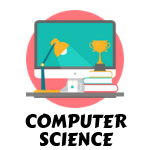Some Features of 1st Year Computer Notes
So 11th Class Computer Notes All Chapters. We have uploaded the notes of the best quality ICS Part 1 Computer Book IT Series in PDF So which covers the new curriculum requirements of all the boards of Punjab. So Since these Notes are in high-quality format, So you can print them without any hassle and prepare yourself for the final paperwork. These notes are divided into three parts.11th Class Computer Notes 2023 All Chapters
The first category includes detailed computer science notes for class 11. This section includes detailed notes on each of the first-year computer science topics. We also include solved exercises and important questions at the end of these notes.
The second and third categories consist of fully solved exercises, MCQs, and short questions. We also added additional MCQs and short questions to cover each topic. You don’t need to buy an expensive book or note to prepare for the first year of computer science. These notes are completely free to use.
Chapter 1: Introduction to Computers
The first chapter of the computer course serves as the foundation for your entire learning journey. It introduces you to the captivating world of computers, their significance in our lives, and their role in modern society. Understanding the basics of computer systems, hardware, software, and the various components that make up a computer is crucial. Our comprehensive notes delve deep into these concepts, providing clear explanations, engaging examples, and visual aids to enhance your understanding.
Chapter 2: Computer Organization
Building upon the fundamentals, the second chapter focuses on computer organization. Here, you will explore the intricate details of how a computer functions internally. We cover topics such as the central processing unit (CPU), memory hierarchy, input/output devices, and storage systems. Our meticulously crafted notes provide step-by-step explanations and relevant diagrams to demystify complex concepts, ensuring that you grasp them effortlessly.11th Class Computer Notes 2023 All Chapters
Chapter 3: Boolean Algebra and Logic Gates
Boolean Algebra and Logic Gates are essential topics within the computer course. These concepts form the building blocks of digital circuits and logical operations. Our notes break down the fundamentals of Boolean Algebra, truth tables, logic gates, and their applications. We present you with numerous examples and problem-solving techniques to enhance your logical reasoning skills.
Chapter 4: Introduction to C++ Programming
As you progress through the computer course, you will delve into the fascinating world of programming. Chapter 4 introduces you to the C++ programming language, which is widely used in various domains. Our comprehensive notes guide you through the basics of C++ syntax, data types, control structures, functions, and arrays. We provide practical examples and coding exercises to strengthen your programming skills.
Chapter 5: Conditional and Loop Statements in C++
Conditional and loop statements are powerful tools that enable you to control the flow of your program. In this chapter, we delve deeper into decision-making structures, such as if-else statements and switch-case statements. Additionally, we explore loop structures, including for, while, and do-while loops. Our detailed explanations, along with relevant code snippets, ensure that you become proficient in implementing these essential programming constructs.
Chapter 6: Arrays and Strings in C++
Arrays and strings are fundamental data structures that allow you to store and manipulate data effectively. Chapter 6 focuses on these vital components of C++ programming. We provide comprehensive notes on array declaration, initialization, accessing elements, and performing various operations on arrays. Furthermore, we delve into string manipulation, concatenation, and comparison techniques, equipping you with the necessary skills to handle textual data.
Chapter 7: Functions in C++
Functions play a pivotal role in modularizing your code and promoting code reusability. Chapter 7 explores functions in depth, covering function declaration, parameters, return types, and function overloading. Our notes include numerous examples and exercises to reinforce your understanding and hone your ability to design and implement efficient functions.
Chapter 8: Object-Oriented Programming Concepts
Object-Oriented Programming (OOP) is a paradigm widely used in modern software development. This chapter introduces you to the fundamental concepts of OOP, including classes, objects, encapsulation, inheritance, and polymorphism. We provide clear explanations, real-world examples, and class diagrams to facilitate your comprehension of these essential concepts.
Chapter 9: Classes and Objects in C++
Chapter 9 builds upon the OOP concepts introduced in the previous chapter. Here, we focus specifically on classes and objects in C++. You will learn how to define classes, create objects, access member variables and functions, and utilize constructors and destructors. Our comprehensive notes elucidate the nuances of class hierarchies, access specifiers, and object-oriented design principles.
Chapter 10: Constructors and Destructors in C++
Constructors and destructors are critical components of class implementation in C++. In this chapter, we dive deep into these vital aspects, explaining their purpose, syntax, and best practices. You will gain a thorough understanding of constructor overloading, copy constructors, and destructors, enabling you to write robust and well-structured code. for more information visit ilmwap.com
Chapter 11: Data File Handling in C++
Handling data files is an essential skill in many real-world applications. Chapter 11 equips you with the necessary knowledge to read from and write to files in C++. We cover file operations, such as opening, closing, reading, and writing data. Additionally, we explore techniques for handling errors and exceptions during file operations, ensuring the reliability and robustness of your programs.
